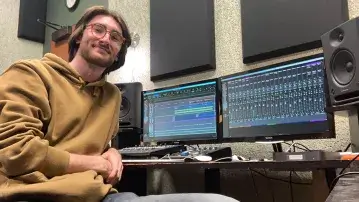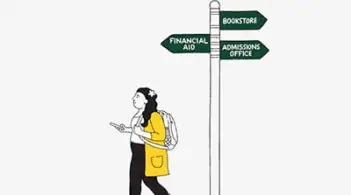With a strong foundation in music theory fundamentals, majors will learn to create and produce digital music, use industry-standard software and hardware, and culminate with either an internship in a recording studio or performance venue or a senior project based in the music technology or business industries.
The B.A. in Music Technology and Business is uniquely designed for singers and instrumentalists who seek to receive a well-rounded education in the technology and business of music while keeping active in performance. Students will learn how to use digital audio software and hardware in our Recording Studio and Music Technology Computer Lab, and the inner workings of music industry through courses in music business and copyright and arts management, while receiving required performance credits through taking group piano courses as well as private lessons.
The capstone project is either a senior Internship at a concert festival, performance venue, or recording studio; or a Senior Project in our own studio. In both cases, seniors work under the supervision of a faculty member in their area of interest.
Audition and Declaring the Major
Current and prospective students may declare the music technology and business major concentration immediately.
Unlike other concentrations in the music program, students in music technology and business are not required to pass the basic performance assessment on a classical or jazz instrument/voice as a prerequisite but must pass the audition as part of their requirements for completing the degree. Students are encouraged to take this audition as soon as they and their teachers think they are prepared, but in any event, must pass this audition before undertaking their senior project or internship. We strongly recommend that students enroll in private lessons (MUL 1700) with one of our music faculty every semester leading up to the level II audition.
If you declare the major in technology/business, and decide to transfer to another concentration of the music major, you must pass the basic performance assessment before that new concentration may be declared.



